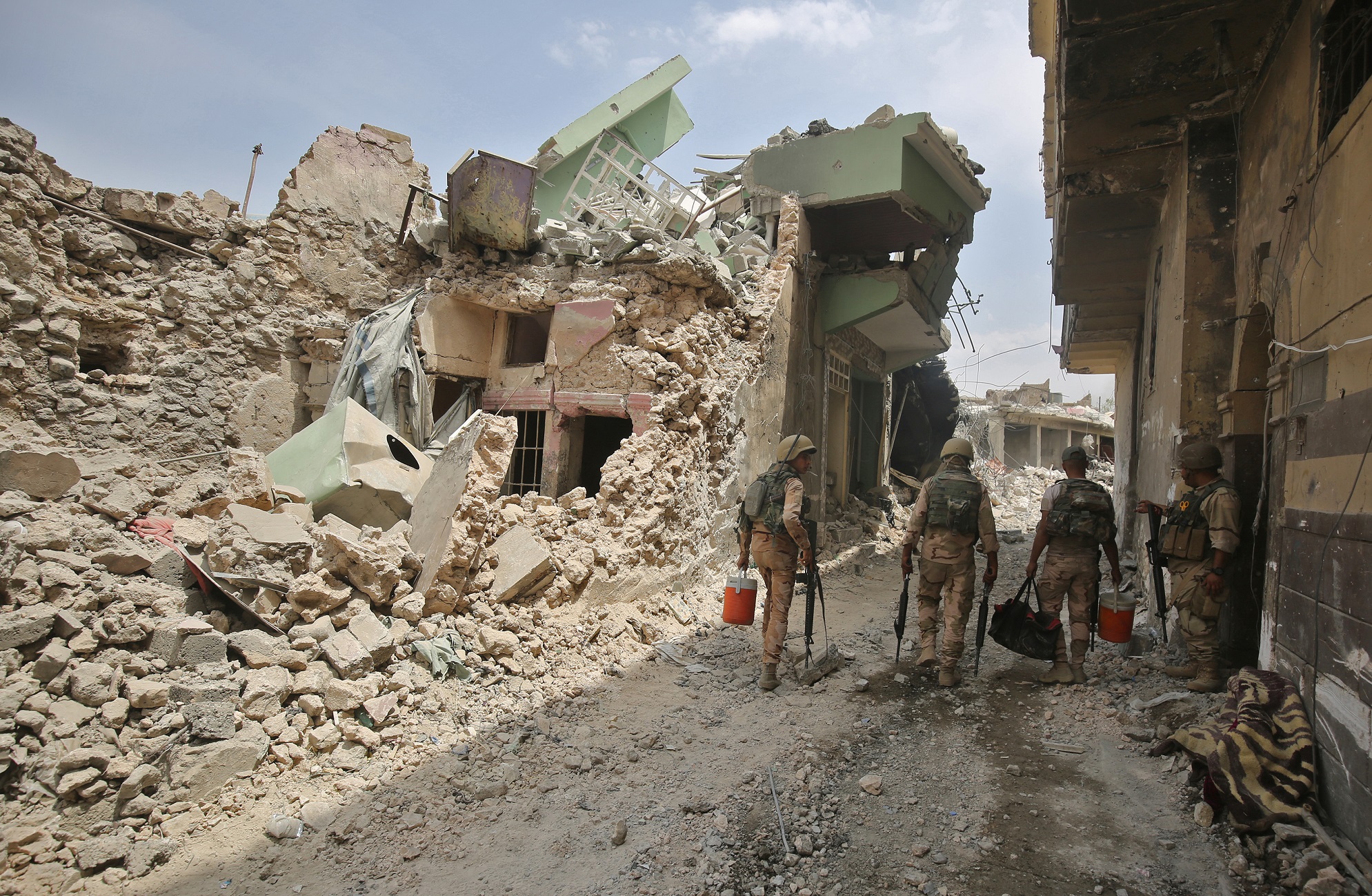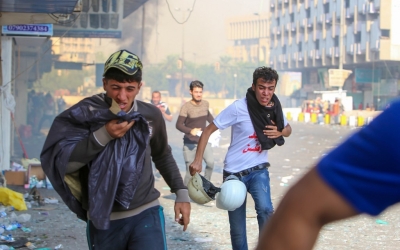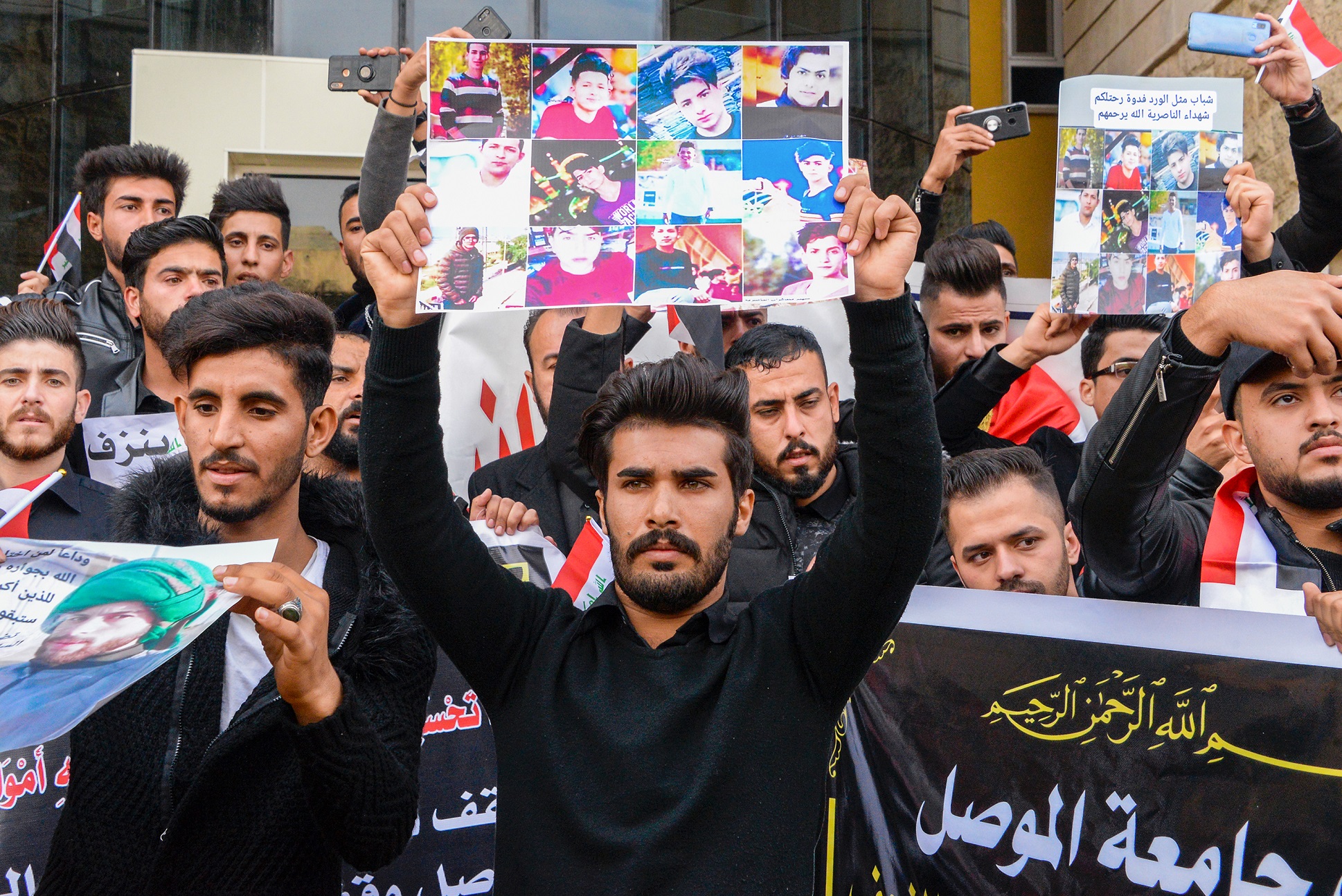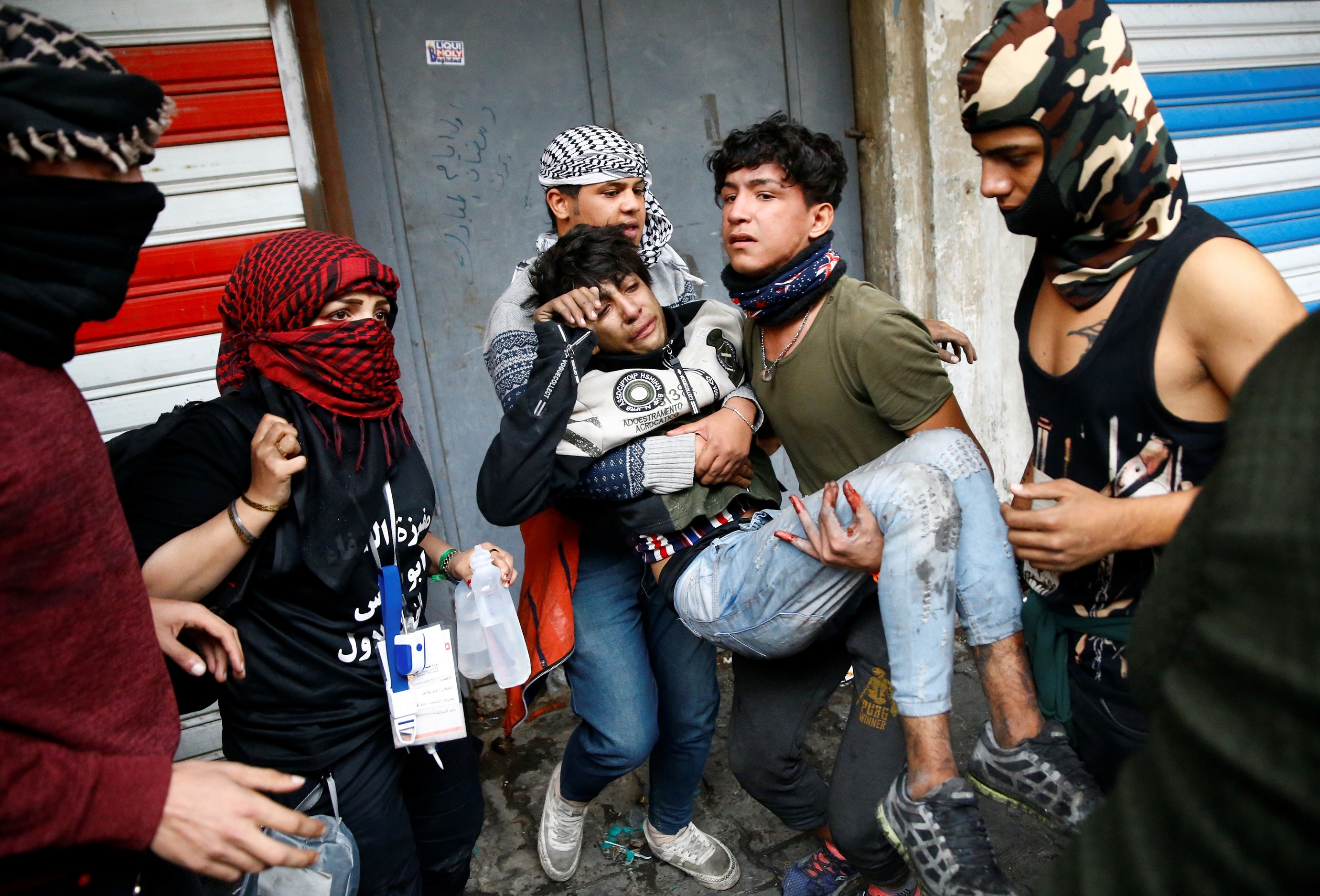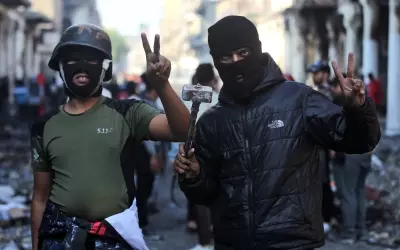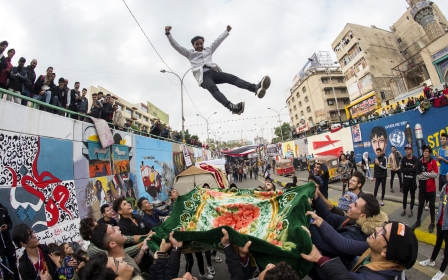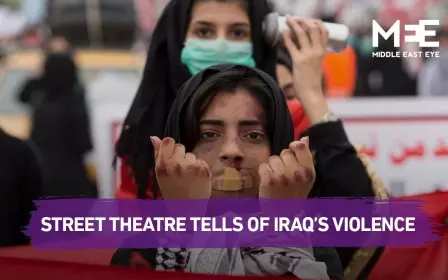From heroes to 'heartless' killers - Iraqis turn fury on security forces
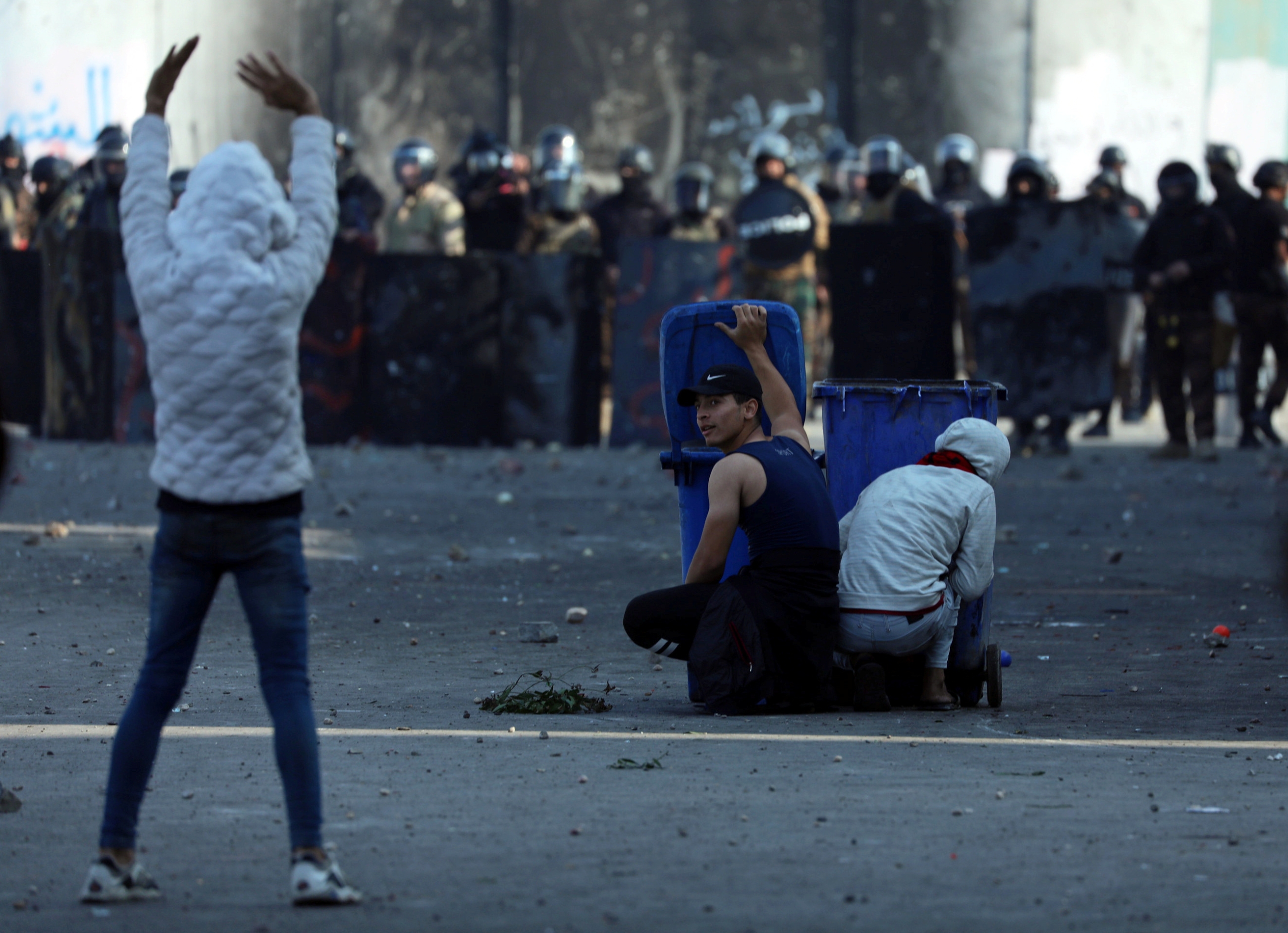
Two years ago, Iraq’s security forces were hailed as heroes for defeating Islamic State (IS), but now they are being vilified for their part in killing and maiming protesters across Iraq.
Tuesday was the second anniversary of Victory Day, marking Iraq’s official defeat of IS and declared an annual national holiday by former Iraqi Prime Minister Haider al-Abadi.
Thousands of civilians were murdered and abused at the hands of IS which, at its height, controlled almost one third of the country, and more than 67,300 war-related civilian deaths were documented, although many more went unrecorded.
'If my government told me now to shoot protesters, I would refuse because the people protesting are just like me, my brother, my father or my friends'
- Iraqi special forces soldier
"On the second anniversary of Iraq's victory over Daesh, we salute the Iraqi people, and honour our martyrs and injured soldiers. Their sacrifices made Iraq’s victory possible, Iraq's beleaguered outgoing government wrote in a tweet, marking the anniversary of IS's defeat.
The day should have been cause for celebration but, two years later and in the middle of Iraq’s current wave of civil unrest, the security forces formerly hailed as heroes are starting to lose the respect garnered during their hard-fought, four-year battle to defeat IS, which left an estimated 26,000 military personnel dead and a further 28,000 wounded.
New MEE newsletter: Jerusalem Dispatch
Sign up to get the latest insights and analysis on Israel-Palestine, alongside Turkey Unpacked and other MEE newsletters
Since early October, when Iraqis took to the streets to protest against endemic corruption, crumbling infrastructure, scant job opportunities and widespread poverty, they have faced off against the country’s security forces, who have sealed off key roads and bridges in Baghdad and southern cities in an attempt to keep protesters within confined areas.
International NGO Human Rights Watch (HRW) reported early on in the protest movement that Iraqi security forces were using “excessive and unnecessary lethal force” in confrontations with protesters.
The military response has already left 460 dead and 19,800 wounded, according to Iraq’s High Commission for Human Rights, an independent institution which has repeatedly urged the government and its security forces to prevent the use of excessive force.
The other side
Photos of slain and wounded Iraqi protesters have grabbed headlines and dominated social media, but images from the other side gain little attention, partly because of a long-standing government policy of not widely publicising military casualties.
However, photos circulated on a WhatsApp group for Iraqi journalists last week showed terrible injuries sustained by soldiers in southern Iraq.
Speaking on condition of anonymity, a soldier stationed in Baghdad told Middle East Eye that, in Nasiriyah, soldiers "were reacting to attacks from civilians".
“Some soldiers were killed and severely wounded from the molotov [cocktails] thrown by protesters. Their clothes and even some vehicles caught fire and they burned to death," he said, in reference to recent clashes between protesters and the military that left at least 40 dead and more than 200 wounded.
"What should soldiers do, when they are being attacked and killed by protesters? Should they just stand there and let themselves get killed, or run away?”
He pointed out that an integral part of military service was to unquestioningly obey orders, adding: “The military sometimes have to find a way to hold their positions.”
Iraq’s High Commission for Human Rights told MEE that 17 members of Iraq’s security forces had been killed and 2,756 wounded since the beginning of the civil unrest.
While these numbers are just a fraction of the civilian casualty figures, they underscore the violence bubbling beneath Iraq’s protest movement, which many supporters term a "revolution".
In early October, based on interviews with witnesses to protests in several areas, a HRW report said: “All saw demonstrators throw rocks at security forces and set fire to tyres, cars and political party offices. Some injured security force personnel were taken away in ambulances.”
Increased violence from both sides was reported during November and into December, with increasing unrest in Baghdad, where protesters told MEE they threw molotov cocktails at Iraqi forces on a daily basis, and in southern provinces, where demonstrators stormed the police directorate in Nasiriyah and twice set the Iranian consulate in Najaf ablaze.
From Mosul to Baghdad
Reports of government forces opening fire with live rounds on protesters, accompanied by gruesome images, have not only grabbed international media attention but have also dominated local and social media, turning some ordinary civilians against Iraq’s military.
“The soldiers are fucking bastards. They are ruthless and relentless heartless pieces of shit,” said a Mosul resident who lost most of his family under IS and during the battle to liberate the city.
When asked if these were not the same forces who had liberated his city, he fumed: “The same bastards who let IS invade my city in the first place. Isn’t that what the army is supposed to do, keep people safe?”
'The soldiers are fucking bastards … the same bastards who let IS invade my city in the first place' - Mosul resident
Several years ago, a major in the Iraqi army told MEE on condition of anonymity that government forces stationed in Mosul in 2014 had received official orders to abandon their posts and leave the city.
By the time the battle for liberation started, the Iraqi forces’ retreat, which enabled just a few hundred IS militants to rapidly seize control of the city, had been temporarily forgotten after the barbarity of IS.
But resentment is now resurfacing, not least because of what many Mosul residents view as the Iraqi government’s failure to invest in rebuilding the city, which suffered large-scale destruction.
In predominantly Sunni provinces formerly under IS control, people have largely abstained from taking to the streets, but residents from both Mosul and Fallujah told MEE that locals collected money in support of the Baghdad protests.
One student said $5,000 had been sent from Mosul University alone, where most students are now on strike, refusing to attend lectures in solidarity with protesters.
Foreign infiltrators
“People who say such negative things about the Iraqi forces do not really support Iraq,” said special forces soldier Ahmed, using only his first name.
“Yes, some people are saying these things but, honestly, most Iraqis still believe in the Iraqi army.”
He claimed that other countries wanted to break apart Iraq’s military, which, following the defeat of IS, comprises a large, battle-hardened fighting force.
Ahmed also alleged that there is a foreign infiltration among soldiers holding the front lines against protesters, as well as among demonstrators themselves in the form of rogue, trouble-making elements.
Another special forces soldier, stationed at a small southern town that has seen modest demonstrations, told MEE that he believed foreign fighters among Iraqi forces and rogue snipers in Nasiriyah and Baghdad were largely to blame for civilian deaths.
“I don’t know for sure because I’m not there, but I think there are other nationalities among our security forces. They speak Arabic, have Iraqi ID and wear Iraqi uniforms but they are not Iraqi,” he said, insisting that ordinary Iraqi servicemen would not open fire on unarmed protesters, regardless of orders.
“If my government told me now to shoot protesters, I would refuse because the people protesting are just like me, my brother, my father or my friends. We all want the same things. We all need electricity, good hospitals, good schools and good roads,” he said.
He shrugged off the type of weapons deployed by protesters, saying: “What is a molotov [cocktail] to me? A little bottle of petrol is nothing when I have a gun. But I will not shoot any person not carrying a gun.”
Across Iraq, posters honouring the thousands of soldiers killed during the battle against IS still line the streets but, in Tahrir Square, they are being supplanted by images of Iraq’s new "martyrs" - the several hundred civilian dead from the two-month protest movement.
Middle East Eye delivers independent and unrivalled coverage and analysis of the Middle East, North Africa and beyond. To learn more about republishing this content and the associated fees, please fill out this form. More about MEE can be found here.


